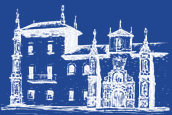Abstract
This article examines the performative and ritual aspects of bertsolariak or Basque troubadours in the context of competitive championships. I describe the linguistic and cultural references that derive from the past and continue to the present. My goal is to research the relationship between the ritualization of cultural production of words and creativity, on the one hand, and community production, on the other, with the purpose of obtaining more in-depth information about cultural identity. In order to do so, I analyze the oral context of the championship in both the past and the present. I dwell on a paradox at the very heart of the championship as I argue that, while the competitive scheme which the championship brings to society is in itself completely genuine, what really matters is the communicative influence it produces for the entire Basque culture and society. By using words and creativity competitively in a verbal field of deep play, people's lives are expressed and profoundly influenced in an imaginative cultural arena.
DOI
https://doi.org/10.18122/B2R99Z
Recommended Citation
Larrañaga Arriola, Jexux
(2016)
"The Bertsolariak Championship as Competitive Game and Deep Play,"
BOGA: Basque Studies Consortium Journal: Vol. 4
:
Iss.
1
, Article 2.
https://doi.org/10.18122/B2R99Z
Available at:
https://scholarworks.boisestate.edu/boga/vol4/iss1/2

About the Author
Jexux Larrañaga Arriola obtained a doctorate in Social and Cultural Anthropology at the University of Basque Country. He was a researcher fellow at the department of Philosophy and Social Anthropology. The director of his doctoral thesis on bertsolaritza was Joseba Zulaika. His research interests include oral performance in a communal context, and the cultural construction of identity and the subject. He has recently published his first book Jolas sakona (Deep play) and several papers on bertsolaritza. Currently he teaches the Basque language and social science at the University of the Basque Country.
Graduated in Basque Philology
Graduated in Social Anthropology
PhD in Anthropology